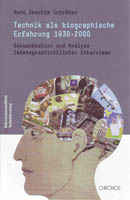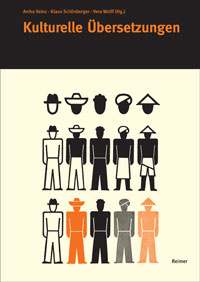Call for papers, posters & films - Knowledge as Dispositive Cultures and Regimes in the Capitalization of Work
15th Conference of the Commission “Work Cultures” in the German Association of Cultural Anthropology, European Ethnology & Folklore Studies (“Deutsche Gesellschaft für Volkskunde”)
7-9 April 2011, Zeppelin University, Friedrichshafen
Deadline for the submission of the proposal: 1 March 2010
The conference will discuss current topics that the commission on work cultures (Arbeitskul-turen) research focuses on (http://www.d-g-v.org/kommissionen/index.html). It will continue disscussions of former conferences on virtualization (Passau 2005), demarcation and delimita-tion (Hamburg 2007), as well as mobility and mobilization (München 2009).
In contemporary societies, knowledge is considered a basic resource and vital force of pros-perity, social development and lasting productivity. The ongoing intensification of educational achievement, the financial promotion of industrial research and development and the strengthening of the economization of knowledge are paragons of future orientation. Never-theless the number of critical voices towards this position is increasing. The excessive use of the term “knowledge” has resulted in a very general and unspecific usage of the term. Moreo-ver, it has lead to an unquestioned multiplication and diffusion of the basic assumptions of the concept of knowledge society. What is actually necessary is a critical analysis of the terms, concepts and paradigms of the knowledge society based on a broad understanding of the “knowledge” concept as it is developed in cultural theory. Such a culturally informed analysis will bring fresh insights, especially with regard to the future of work and work culture.
When the strategies of the knowledge economy are addressed from the viewpoint of work sociology, they are portrayed as cognitive capitalism. In cultural studies however, the term knowledge and the analysis of work in the knowledge society are understood in a broader context. Experience and practice (habitus) have proven to be fundamental dimensions of knowledge. According to this broad understanding, knowledge is situated, acquired and ap-plied in specific social, spacial or cultural contexts and is often connoted emotionally. Know-ledge is thus strongely limited in its transferability into new social settings. Moreover, the in-terlacing of knowledge and power relations along with its embedment in particular knowledge orders (discourse, archeology of knowledge) have been central themes in the culturally in-formed discussion of knowledge. These orders come into being through arrangements of di-verse social and materialistic elements (assemblage). Consequently, the questions asked when researching work in the knowledge society from a cultural analytical perspective are: How are social changes of work organized alongside paradigms of the economization of knowledge? Which pictures, concepts, discourses, materials and regimes of work are established with knowledge as a dispositive? Which (resistant) strategies do actors develop in the face of these regimes?
In practice this means analyzing knowledge as a resource in the working process and particu-larly focusing on the significance of practice, experience, emotionality and (new) modes of knowledge capitalization. What is to be explored are diverse dimensions (cognitive, emotional, subjective, habitual, cultural, professional, economical, etc.) of knowledge in work processes, (work-) biographies and different forms of (visual, habitual, ritual, medial) knowledge representation in work processes. Especially relevant in this process are knowledge orders, hierarchies of knowledge domains and power relations, as well as the practices and discourses, which create and reproduce these orders.
Hereby the questions, which have been in the focus of cultural research on work cultures are addressed in a manifold manner. Especially important in connection with the new concepts and standards in worklife are the meaning of intellectual or rather social and cultural capital, further expectations towards learning capability and education competence, and also personal-ity and habitus. To specify, these standards point towards the context of subjectivation, self-entrepreneurship, work force entrepreneurship and spacial and temporal dissolutions of work. This is increasingly the case even for (re-)productive activities in industry, households and agriculture. The capitalization of individual knowledge(s) (e.g. due to migration or gender) is now more important and with it new ways to manage and to make profit from intellectual work capacities, for instance in creative areas and work spheres dealing with knowledge. Ad-ditionally, the economical use of collective knowledge resources and open source know-ledge(s) is of interest. Furthermore the conditions and strategies come into focus that help ap-ply diverse forms of knowledge (expertise, experience, in objects materialized knowledge(s), etc.). More questions are raised when regarding the new orientations of professional environ-ments towards ensuring learning processes, towards constantly updating knowledge, network-ing, and towards creating a dense communication infrastructure and virtualization. These ten-dencies are supposedly also affecting school and job education, academic studies or the transi-tion to retirement. In this context the transformation and reinvention of cities or regions and their images according to the knowledge paradigm, transformation and classification of cities and regions as industrial and work locations (research locations, creative cities and industries, hospitality industries in tourism, care, etc.) is also significant.
Following this profile, contributions to the conference dealing with Folklore Studies / Cultur-al Anthropology / European Ethnology/ Cultural Studies and similar disciplines (History, So-ciology, Politics, etc.) are welcomed, if working to these central topics:
1. Immobilities: combination of diverse knowledge(s) in specific work and life contexts; structures facilitating flexibility and mobility; problems and conditions for the transfer of social and cultural capital;
2. Financial crisis: knowing and not knowing, experiences and knowledge from the crisis;
3. Knowledge as a resource and a commodity: strategies, forms, paradoxes and limits of the capitalization of knowledge in the work context; access to collective knowledge, customer work and open source; protection of knowledge and intellectual property; non capitalist visions of work and volunteer work;
4. Work biographies: individual positions and strategies in dealing with livelong learning, (de-)qualification, job cutbacks, the growing low wage sector, etc.;
5. Diversity of knowledge forms in the conflict area between knowledge crafters and knowledge workers; knowledge structures and hierarchies in work contexts;
6. Organizational forms of knowledge-work in different areas such as the creative indus-tries, research and development, etc.;
7. Transfer of knowledge, contexts of application and utilization of work culture re-search;
8. Representation and procurement of knowledge in (work-) museums as well as
9. Further topics within work culture research and adjacent areas.
Invited are proposals for lectures, posters and films. Outlines with approximately 4000 cha-racters containing brief details of the academic vita are to be sent to:
arbeitskulturen@zeppelin-university.de by 1 March 2010
Prof. Dr. Gertraud Koch
Lehrstuhl für Kommunikationswissenschaft und Wissensanthropologie
Zeppelin University
Am Seemooser Horn 20
88045 Friedrichshafen
www.zeppelin-university.de
7-9 April 2011, Zeppelin University, Friedrichshafen
Deadline for the submission of the proposal: 1 March 2010
The conference will discuss current topics that the commission on work cultures (Arbeitskul-turen) research focuses on (http://www.d-g-v.org/kommissionen/index.html). It will continue disscussions of former conferences on virtualization (Passau 2005), demarcation and delimita-tion (Hamburg 2007), as well as mobility and mobilization (München 2009).
In contemporary societies, knowledge is considered a basic resource and vital force of pros-perity, social development and lasting productivity. The ongoing intensification of educational achievement, the financial promotion of industrial research and development and the strengthening of the economization of knowledge are paragons of future orientation. Never-theless the number of critical voices towards this position is increasing. The excessive use of the term “knowledge” has resulted in a very general and unspecific usage of the term. Moreo-ver, it has lead to an unquestioned multiplication and diffusion of the basic assumptions of the concept of knowledge society. What is actually necessary is a critical analysis of the terms, concepts and paradigms of the knowledge society based on a broad understanding of the “knowledge” concept as it is developed in cultural theory. Such a culturally informed analysis will bring fresh insights, especially with regard to the future of work and work culture.
When the strategies of the knowledge economy are addressed from the viewpoint of work sociology, they are portrayed as cognitive capitalism. In cultural studies however, the term knowledge and the analysis of work in the knowledge society are understood in a broader context. Experience and practice (habitus) have proven to be fundamental dimensions of knowledge. According to this broad understanding, knowledge is situated, acquired and ap-plied in specific social, spacial or cultural contexts and is often connoted emotionally. Know-ledge is thus strongely limited in its transferability into new social settings. Moreover, the in-terlacing of knowledge and power relations along with its embedment in particular knowledge orders (discourse, archeology of knowledge) have been central themes in the culturally in-formed discussion of knowledge. These orders come into being through arrangements of di-verse social and materialistic elements (assemblage). Consequently, the questions asked when researching work in the knowledge society from a cultural analytical perspective are: How are social changes of work organized alongside paradigms of the economization of knowledge? Which pictures, concepts, discourses, materials and regimes of work are established with knowledge as a dispositive? Which (resistant) strategies do actors develop in the face of these regimes?
In practice this means analyzing knowledge as a resource in the working process and particu-larly focusing on the significance of practice, experience, emotionality and (new) modes of knowledge capitalization. What is to be explored are diverse dimensions (cognitive, emotional, subjective, habitual, cultural, professional, economical, etc.) of knowledge in work processes, (work-) biographies and different forms of (visual, habitual, ritual, medial) knowledge representation in work processes. Especially relevant in this process are knowledge orders, hierarchies of knowledge domains and power relations, as well as the practices and discourses, which create and reproduce these orders.
Hereby the questions, which have been in the focus of cultural research on work cultures are addressed in a manifold manner. Especially important in connection with the new concepts and standards in worklife are the meaning of intellectual or rather social and cultural capital, further expectations towards learning capability and education competence, and also personal-ity and habitus. To specify, these standards point towards the context of subjectivation, self-entrepreneurship, work force entrepreneurship and spacial and temporal dissolutions of work. This is increasingly the case even for (re-)productive activities in industry, households and agriculture. The capitalization of individual knowledge(s) (e.g. due to migration or gender) is now more important and with it new ways to manage and to make profit from intellectual work capacities, for instance in creative areas and work spheres dealing with knowledge. Ad-ditionally, the economical use of collective knowledge resources and open source know-ledge(s) is of interest. Furthermore the conditions and strategies come into focus that help ap-ply diverse forms of knowledge (expertise, experience, in objects materialized knowledge(s), etc.). More questions are raised when regarding the new orientations of professional environ-ments towards ensuring learning processes, towards constantly updating knowledge, network-ing, and towards creating a dense communication infrastructure and virtualization. These ten-dencies are supposedly also affecting school and job education, academic studies or the transi-tion to retirement. In this context the transformation and reinvention of cities or regions and their images according to the knowledge paradigm, transformation and classification of cities and regions as industrial and work locations (research locations, creative cities and industries, hospitality industries in tourism, care, etc.) is also significant.
Following this profile, contributions to the conference dealing with Folklore Studies / Cultur-al Anthropology / European Ethnology/ Cultural Studies and similar disciplines (History, So-ciology, Politics, etc.) are welcomed, if working to these central topics:
1. Immobilities: combination of diverse knowledge(s) in specific work and life contexts; structures facilitating flexibility and mobility; problems and conditions for the transfer of social and cultural capital;
2. Financial crisis: knowing and not knowing, experiences and knowledge from the crisis;
3. Knowledge as a resource and a commodity: strategies, forms, paradoxes and limits of the capitalization of knowledge in the work context; access to collective knowledge, customer work and open source; protection of knowledge and intellectual property; non capitalist visions of work and volunteer work;
4. Work biographies: individual positions and strategies in dealing with livelong learning, (de-)qualification, job cutbacks, the growing low wage sector, etc.;
5. Diversity of knowledge forms in the conflict area between knowledge crafters and knowledge workers; knowledge structures and hierarchies in work contexts;
6. Organizational forms of knowledge-work in different areas such as the creative indus-tries, research and development, etc.;
7. Transfer of knowledge, contexts of application and utilization of work culture re-search;
8. Representation and procurement of knowledge in (work-) museums as well as
9. Further topics within work culture research and adjacent areas.
Invited are proposals for lectures, posters and films. Outlines with approximately 4000 cha-racters containing brief details of the academic vita are to be sent to:
arbeitskulturen@zeppelin-university.de by 1 March 2010
Prof. Dr. Gertraud Koch
Lehrstuhl für Kommunikationswissenschaft und Wissensanthropologie
Zeppelin University
Am Seemooser Horn 20
88045 Friedrichshafen
www.zeppelin-university.de
jmueske - 8. Feb, 12:38
















Trackback URL:
https://technikforschung.twoday.net/stories/6178860/modTrackback